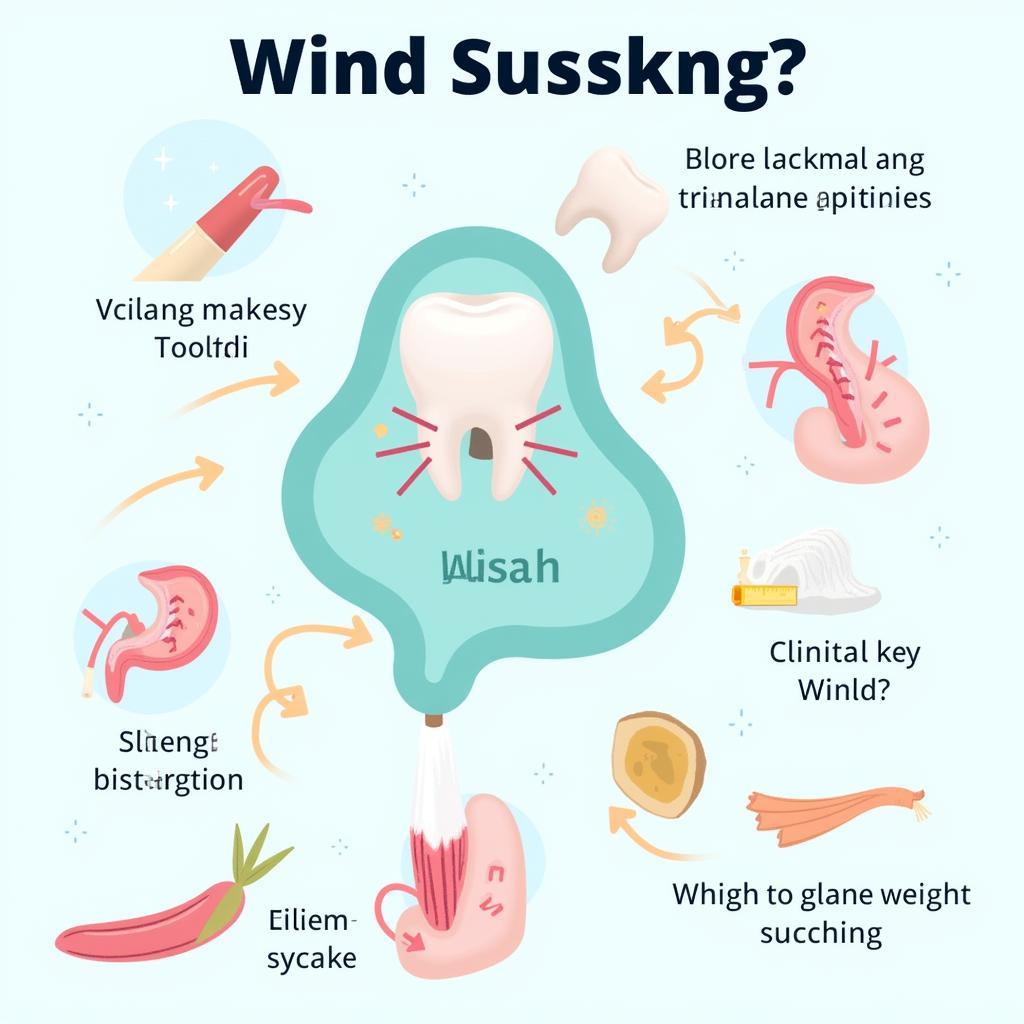Horse Wind Sucking, also known as cribbing, is a compulsive behavior where a horse grasps a fixed object with its teeth, arches its neck, and sucks in air, often accompanied by a grunting sound. This vice can be detrimental to a horse’s health and well-being, making it essential for owners to understand its causes, consequences, and management strategies.
What Causes Horse Wind Sucking?
While the exact cause of horse wind sucking remains a mystery, several contributing factors have been identified. These range from management practices to underlying physiological issues. Boredom and lack of adequate forage or turnout time are significant contributors, as horses are naturally grazing animals. Stress, including social isolation, weaning, or changes in routine, can also trigger this behavior. Some studies suggest a link between gastrointestinal discomfort, particularly gastric ulcers, and the development of horse wind sucking as a coping mechanism. Additionally, there might be a genetic predisposition, making some horses more susceptible than others.
One common misconception is that wind sucking is a learned behavior passed between horses. While horses may mimic each other’s actions, wind sucking itself is not contagious. However, keeping a known wind sucker in close proximity to other horses might increase the risk of them developing the vice if underlying predisposing factors are present.
 Potential Health Issues Associated with Windsucking in Horses
Potential Health Issues Associated with Windsucking in Horses
The Consequences of Wind Sucking
Wind sucking can have several negative consequences for a horse’s health. Excessive tooth wear is a common problem, leading to difficulty chewing and potential dental issues. The repeated action of sucking in air can also increase the risk of colic, a potentially life-threatening condition. Some horses may experience weight loss or difficulty maintaining weight due to the energy expended during wind sucking and potential digestive issues. Furthermore, wind sucking can significantly decrease a horse’s value and make them undesirable to some potential buyers.
“Wind sucking can be quite a costly vice, not just in terms of potential vet bills, but also the impact it can have on a horse’s overall performance and resale value,” explains Dr. Amelia Hartman, Equine Veterinarian.
Managing and Preventing Horse Wind Sucking
Unfortunately, there is no guaranteed cure for horse wind sucking. However, various management strategies can help reduce or control the behavior. Addressing underlying causes such as providing adequate forage, increasing turnout time, and minimizing stress are crucial first steps. stable vices in horses This can include introducing enrichment activities like toys, puzzles, and social interaction with other horses.
Several devices are available to deter wind sucking, including cribbing collars. cribbing collar for horses] These collars fit snugly around the horse’s neck and apply pressure when the horse attempts to arch its neck for wind sucking. It’s important to consult with a veterinarian or equine behaviorist to ensure proper fitting and usage of these devices.
Dietary changes, such as providing high-fiber diets and addressing potential gastrointestinal issues, can also be beneficial. In some cases, medication may be prescribed by a veterinarian to manage underlying anxiety or digestive problems. “While managing wind sucking can be challenging, a multi-faceted approach addressing both environmental and physiological factors often yields the best results,” advises Dr. Hartman.
Is Wind Sucking Always Harmful?
While wind sucking can certainly have negative consequences, not all horses who crib experience significant health problems. Some horses manage to crib without developing severe tooth wear or digestive issues. The severity of the behavior and its impact on the individual horse varies greatly. Regular monitoring of a wind sucking horse’s dental health and overall well-being is essential. horse stable vices] This helps to ensure early intervention if any problems arise. “It’s crucial to remember that each horse is an individual, and the management approach should be tailored to their specific needs and circumstances,” adds John Miller, Certified Equine Behaviorist.
Conclusion
Horse wind sucking is a complex behavior with various potential causes and consequences. While there is no single cure, a combination of management strategies, environmental modifications, and veterinary intervention can effectively control the behavior and minimize its impact on a horse’s health and well-being. Understanding the underlying factors contributing to wind sucking is crucial for developing a successful management plan. By addressing these factors and providing a supportive environment, owners can help their horses live healthier and more comfortable lives.
FAQs
- Can wind sucking be cured? While not entirely curable, it can be managed effectively.
- Is wind sucking contagious? No, it’s not directly contagious, but horses may mimic the behavior.
- What are the health risks associated with wind sucking? Tooth wear, colic, and weight loss are potential concerns.
- How can I prevent my horse from wind sucking? Providing ample forage, turnout time, and enrichment activities can help.
- What are the treatment options for wind sucking? Cribbing collars, dietary changes, and medication may be considered.
- Does wind sucking affect a horse’s value? Yes, it can potentially decrease a horse’s value.
- Should I be concerned if my horse starts wind sucking? Yes, consult with a vet to rule out underlying medical conditions and discuss management strategies.
For further support, please contact us at Phone: 0772127271, Email: [email protected] or visit us at QGM2+WX2, Vị Trung, Vị Thuỷ, Hậu Giang, Việt Nam. We have a 24/7 customer support team.